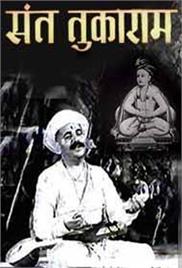Be Careful of Fake Websites. Always use HindiMovies.to domain & Join our Telegram Channel for Latest Updates.

Likes: 4
Views: 2.38K
This classic film chronicles the life of Tukaram (17th C.), one of Maharashtra’s most popular saint poets, activating the 20th-C. resonances of his turning away from courtly Sanskrit towards vernacular rhythms of religious poetry which constituted the first major emancipatory movement against brahmanical caste domination. The episodic plot pits Tukaram (Pagnis) against the Brahmin Salomalo (Bhagwat), who pretends to be the true author of Tukaram’s songs while calling for his ostracization.
Duration: 131 min
Released: 2013
IMDb Rating: 6.5/10 (134 Votes)
Genre: Hindi Movies, History
Stars: Vishnupant Pagnis, Gauri, B. Nandrekar, Shankar Kulkarni
Directors: Vishnupant Govind Damle, Sheikh Fattelal
Writers: Shivram Vashikar
Year: 1936
Server 1 – Dailymotion
Server 2 – Youtube
Server 3 – Youtube
Sant Tukaram (1936): A Timeless Cinematic Tribute to the Saint Poet
Released in the year 1936, Sant Tukaram is a classic Hindi historical film that has left an indelible mark on Indian cinema and cultural history. Directed by Vishnupant Govind Damle and Sheikh Fattelal, this movie masterfully portrays the life and spiritual journey of the revered Marathi saint and poet, Sant Tukaram. The film stands as an evocative tribute to a man whose devotional poetry and teachings continue to inspire generations.
Story and Synopsis
The movie centers around the life of Sant Tukaram, a 17th-century Marathi saint renowned for his heartfelt abhangas (devotional songs) dedicated to Lord Vithoba, a form of Lord Krishna. Sant Tukaram illustrates his transformation from a simple, devoted man faced with numerous trials and tribulations to a saintly figure, revered for his spiritual wisdom, dedication, and compassion.
The narrative unfolds during the turbulent times of medieval India, where social inequalities and orthodox practices dominated society. Tukaram's emphasis on devotion (bhakti) and equality challenges the rigid caste systems and religious formalism prevalent in his community. The movie beautifully captures his interactions with villagers, his family struggles, and his unwavering faith that ultimately leads him to spiritual enlightenment.
Through poignant dialogues and soulful music, Sant Tukaram presents themes of humility, love, devotion, and resistance to social injustice. It portrays how Tukaram's teachings and verses uplifted common people, encouraging them to seek divine love beyond rituals and superstitions.
Main Cast and Performances
Other supporting actors contribute to creating a vivid historical atmosphere that transports the audience to 17th-century Maharashtra.
Direction and Writing
The movie is helmed by directors Vishnupant Govind Damle and Sheikh Fattelal, who were pioneers in the Indian film industry and founders of the Prabhat Film Company. Their adept direction ensures a compelling blend of spirituality and cinematic storytelling. The screenplay and dialogues pay meticulous attention to the historical context and the poetic legacy of Sant Tukaram.
The writing profoundly respects the saint's original verses and teachings, while making them accessible to a wide audience. The film's script evokes emotional depth, blending inspirational philosophy with human drama expertly.
Music and Songs
Given that the film is centered around a saint renowned for his poetry and songs, music holds a pivotal role. The soundtrack incorporates traditional Marathi abhangas, set to melodious tunes of that era. These devotional songs are performed with deep reverence and integral to portraying the saint’s spiritual journey.
The singers and musicians involved preserved the authenticity of the saint’s work, making sure the music serves as both narrative device and a source of devotional experience for viewers. The songs express heartfelt devotion, struggle, and divine love — enhancing the emotional and spiritual resonance of the film.
Cultural Impact and Legacy
Sant Tukaram (1936) stands as a milestone in Indian cinema. It was one of the first Marathi films to gain nationwide acclaim and is credited with bringing serious historical and devotional subjects to the forefront of popular culture. The movie has been lauded for its sensitive portrayal of religious themes without resorting to commercial excess.
Beyond its cinematic achievements, the film rediscovered and popularized Sant Tukaram's poetry for a new generation, fostering respect and admiration for his teachings. It won international recognition, including an award at the Venice Film Festival, enhancing India's cultural representation worldwide.
Conclusion
In sum, Sant Tukaram (1936) isn’t just a film but a spiritual and cultural landmark. With stellar performances led by Vishnupant Pagnis, deft direction by Vishnupant Govind Damle and Sheikh Fattelal, and a script that sincerely honors a saint’s legacy, this movie remains a treasured classic. It enlightens and engages audiences, inviting them to reflect on devotion, equality, and the transformative power of faith.
For those who appreciate Indian history, devotional literature, or timeless cinema, Sant Tukaram is a masterpiece well worth watching and cherishing.